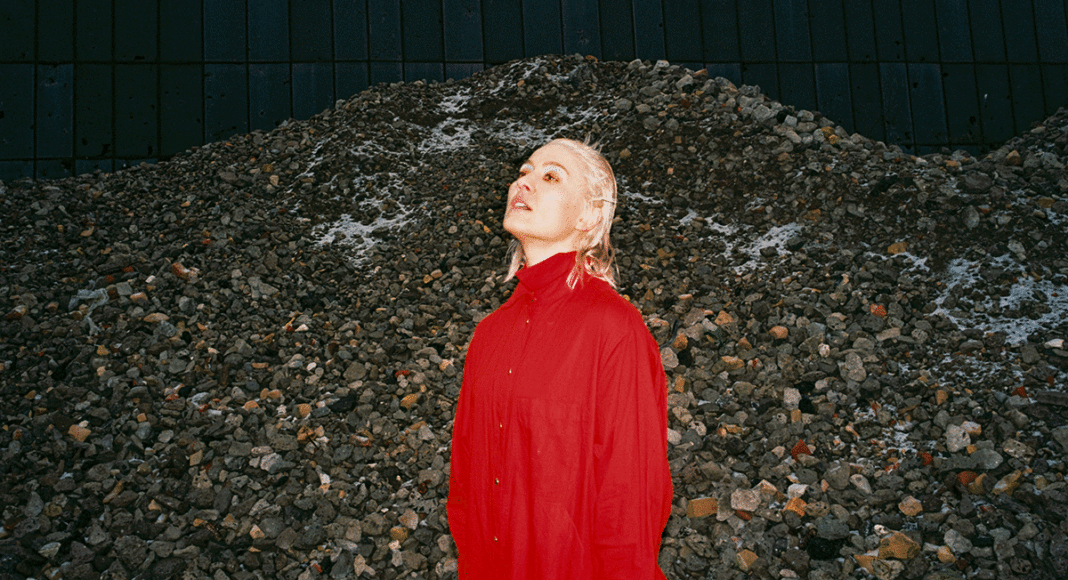Cate Le Bon was caught in a loop. For the better part of a decade, the Welsh musician had been recording, touring, recording, and then touring again in an endlessly repeating pattern.
She had put out four transfixingly weird avant-pop albums. Though she wasn’t a household name, she had made fans out of St. Vincent, John Cale and Jeff Tweedy.
But in 2017, she decided she wanted to make furniture.
“It felt like I needed to check my motives, how invested I was, and re-prioritize things,” she says. “I didn’t comprehend that I was changing the whole architecture of my life.”
She enrolled in a course with Waters and Acland, a renowned furniture-making school in England’s Lake District. For the past few years, she had been living in L.A. In order to take the course, she declined all tour offers for a year, and relocated to a cottage in a national park near the Scottish border. Population: 40,000.
Alone more often than not, Le Bon carved and lathed during the day. At night, back at the cottage, she sat at the piano. With no other musicians around, and no album or tour in sight, music became a hobby again.
“It was like being a child again, where you would go and sit and write on mum and dad’s piano, without caring if the chords made sense,” she says. “It’s reaching that point where you allow yourself to be completely uninhibited. The piano really lends itself to getting lost in an emotion.”
Slowly, songs materialized. Le Bon says it was like writing without “the awareness of writing.”
“It’s something you’re using as a way to release something, instead of sitting at a guitar and going, ‘I have to write a record this week.’”
The result, Reward, which came out this May, is the soundtrack to her time in the Lakes. It is also one of the best albums this year, an avant-pop gem that is only oblique when necessary, and sinks in on repeat listens.
Opening with the dreamy, tidal rhythm of “Miami,” Reward eases in. On the next track, Le Bon goes straight for the heart.
“I love you, I love you, I love you, but you’re not here,” she sings on the chorus of “Daylight Matters.” “I love you, I love you, I love you, but you’re gone.”
With its subdued piano and Twin Peaks-esque guitar work, “Daylight Matters” is like a reflection on air. Before each verse, a ragged synth passes through the song like wind through a copse of trees, followed by a guitar section crisp as morning air. For a career with many high points, “Daylight Matters” is up there.
In a powerful one-two punch, “Home to You” follows. It’s a meditation on life in the margins, alternately comparing home to “an impasse,” “an atrocity” and a “cross hair, stubborn, dream loving.”
The video for “Home to You” explores Le Bon’s lyrics in striking fashion. Shot in a Roma neighborhood of Slovakia where unemployment nears 100%, the video features local teens, tenement dwellers and a community band, highlighting small moments of joy and community against an often-stark backdrop.
“The politics of division are absolutely rife at the moment,” Le Bon says of the video. “It’s impossible to comprehend what it is to be completely stripped of your basic human necessities. You can’t comprehend, but you can look, and you can care.”
Whether she’s putting together a song, a performance or a chair, Le Bon approaches them all with that same philosophy. Though her course is now over, she plans to continue making furniture. It’s an art that is now as much a part of her as music.
“I find it really nourishing,” she says. “It completely erodes any sense of time existing, which I really love. You sit with a piece of wood, and you slowly transform it into something you’ve designed. It’s very intimate, and it’s very personal.”
Cate Le Bon performs at 8:30 p.m. on Sunday, July 7, at Moe’s Alley, 1535 Commercial Way, Santa Cruz. $15 adv/$20 door. 479-1854.












